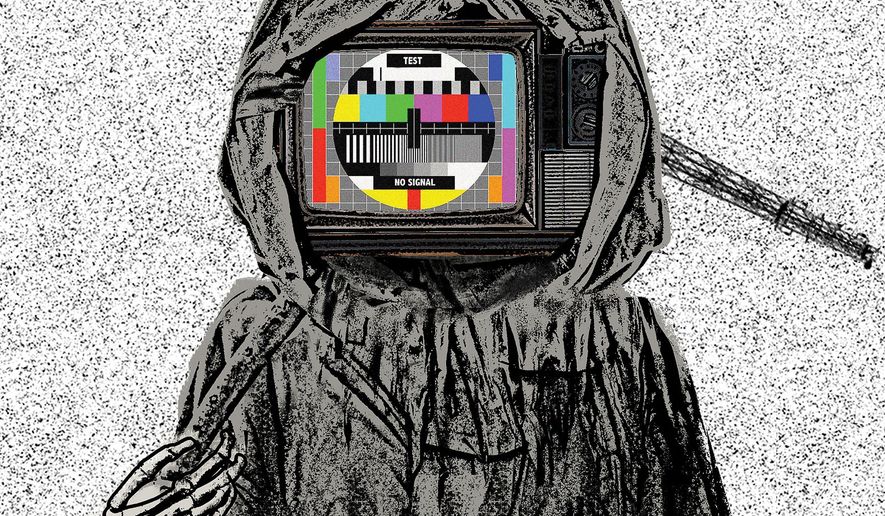OPINION:
For the first time in history, more people watched streaming programming in July than cable television. Those Americans watching broadcast TV were scarcely more than 20% of media consumers. Television is dying, and its end may be only a decade away. While the demise of what my mother frequently called “the boob tube,” may now surely be inevitable, it is one more long goodbye for another part of American life that once brought us together.
The death of television will exacerbate the already evident societal problem of being increasingly disconnected from each other. The one or two clunky tubes that once gathered us into the family room to watch our favorite shows have been replaced with screens in every room, in every pocket, and on every table.
America during the golden age of television was a place and time before sitcoms were banished by the left’s cancel culture, and people watched TV to be entertained, not outraged. They watched to escape, not be slapped in the face with realities and crises at every turn.
In my household, ‘must-see TV’ in the early 1980s was “The A-Team,” “The Dukes of Hazzard” and “Knight Rider.” For other families, it was “Family Ties” or “The Facts of Life” that brought them together. It was one of the few times during the week when everyone was in one room for more than just dinner.
The shows and the regularity of it all did that. The era of the TV Guide was comforting in a world that, despite being “the good old days,” surely had its trials and uncertainties.
I can still hear the iconic theme songs of “Magnum P.I.,” “M*A*S*H,” “Dallas” and “The Love Boat” drifting up the stairs as I went off to bed, annoyed that my older brother could stay planted in front of our 27-inch Zenith for an extra hour.
In those days, we made more time to relax. Watching wasn’t on the go, at odd hours or in short clips. We settled in for longer. Now, my children can flip between a dozen videos, streaming channels and networks in a single hour, never permitting themselves to be sucked into the twists and turns of a good story. It’s jarring and unsettling.
The paradox of choice means we consume more media but often are not edified by it. In our world where everything has become bespoke and niche, where the left’s intersectionality requirements force an agenda into everything, so little is universal. We are drawn away to our own screens, overwhelmed by options and diverged from the shared experience.
It’s almost hard to imagine a time when the old network schedules meant most everyone in the country was watching one of three shows at 8 p.m. on a Tuesday night. Your neighbor, your buddy at the office, the kid next door, even your mother-in-law. The end of TV means a total reversal of that.
Today, media is about chaos and outrage profiteering. Increasingly, everything is breaking news, reality-focused or shock value. Everything is a crisis laid bare in four harrowing minutes or debated with political panelists who are either stuck in an echo chamber or shouting over each other.
The relegation of news to a local and national newscast per day, allowed Americans to keep perspective on the real state of the nation. Today, the drumbeat of bad news and agenda-driven programming often fuels radical ideologies, victimhood culture, anti-Americanism or the perception that life is coming apart at the seams.
Afternoon and Saturday morning cartoons that went on like clockwork now have given way to more programming that drives messages inappropriate for children and designed to indoctrinate. Shielding impressionable young people from that deliberate manipulation under the guise of entertainment will pose an enormous challenge for parents.
There will be benefits, of course, to the end of television as we know it. Production quality and storytelling are improving in series being developed by streaming services far beyond those “made for TV movies” that never saw the inside of a theater. Many of these new shows are as epic in scope and scale as any ever produced by the big networks or Hollywood lots.
Overall, though, we’re not ready. As we begin writing the obituary for American television, we’ll have to work even harder to find pure entertainment that rallies us around the sofa, that provides us again with those connections in our homes and in our nation. We weren’t ready for the responsibility of the smartphone and social media, and we’re not ready for this.
• Tom Basile is the host of “America Right Now” on Newsmax Television, an author and a former Bush administration official.




Please read our comment policy before commenting.